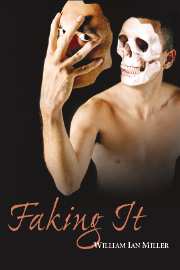Book contents
- Frontmatter
- Contents
- Acknowledgments
- 1 Introduction: Split in Two
- 2 Hypocrisy and Jesus
- 3 Antihypocrisy: Looking Bad in Order to Be Good
- 4 Virtues Naturally Immune to Hypocrisy
- 5 Naked Truth: Hey, Wanna F***?
- 6 In Divine Services and Other Ritualized Performances
- 7 Say It Like You Mean It: Mandatory Faking and Apology
- 8 Flattery and Praise
- 9 Hoist with His Own Petard
- 10 The Self, the Double, and the Sense of Self
- 11 At the Core at Last: The Primordial Jew
- 12 Passing and Wishing You Were What You Are Not
- 13 Authentic Moments with the Beautiful and Sublime?
- 14 The Alchemist: Role as Addiction
- 15 “I Love You”: Taking a Bullet versus Biting One
- 16 Boys Crying and Girls Playing Dumb
- 17 Acting Our Roles: Mimicry, Makeup, and Pills
- 18 False (Im)modesty
- 19 Caught in the Act
- Afterword
- Notes
- Works Cited
- Index
19 - Caught in the Act
Published online by Cambridge University Press: 04 September 2009
- Frontmatter
- Contents
- Acknowledgments
- 1 Introduction: Split in Two
- 2 Hypocrisy and Jesus
- 3 Antihypocrisy: Looking Bad in Order to Be Good
- 4 Virtues Naturally Immune to Hypocrisy
- 5 Naked Truth: Hey, Wanna F***?
- 6 In Divine Services and Other Ritualized Performances
- 7 Say It Like You Mean It: Mandatory Faking and Apology
- 8 Flattery and Praise
- 9 Hoist with His Own Petard
- 10 The Self, the Double, and the Sense of Self
- 11 At the Core at Last: The Primordial Jew
- 12 Passing and Wishing You Were What You Are Not
- 13 Authentic Moments with the Beautiful and Sublime?
- 14 The Alchemist: Role as Addiction
- 15 “I Love You”: Taking a Bullet versus Biting One
- 16 Boys Crying and Girls Playing Dumb
- 17 Acting Our Roles: Mimicry, Makeup, and Pills
- 18 False (Im)modesty
- 19 Caught in the Act
- Afterword
- Notes
- Works Cited
- Index
Summary
Mostly we live and let live with our faking it. I won't call you on yours if you won't call me on mine. The agreement works quite well in domains of small encounters and routine politeness. But what if your faking is less about faking for a good cause – such as politeness, apology, being a dad, a teacher, a friend – than for a bad cause? And what counts as a bad cause? So much of our faking is done to satisfy our vanity, the bad cause par excellence in one well-established moral tradition: the sin of pride.
We have already seen that another nonnegligible moral tradition winked at vanity, even blessed it as the chief motive behind making us virtuous actors. The desire to gain the good opinion of others and the equally great desire to think well of ourselves drove us to do good deeds and cultivate virtue. Vanity of this sort, if not quite a good cause, surely makes the world a better place to live in. To borrow from Lord Chesterfield, why should we not wink at the small-stakes vanities that help people get through the day a little happier; politely flatter them so that they will politely flatter us, all to the advancement of sociability and amiability?
Most – but not all – in the tolerant second tradition would agree that it is a bad cause when our misrepresentations and self-delusions claim more for ourselves than is fair.
- Type
- Chapter
- Information
- Faking It , pp. 220 - 231Publisher: Cambridge University PressPrint publication year: 2003



